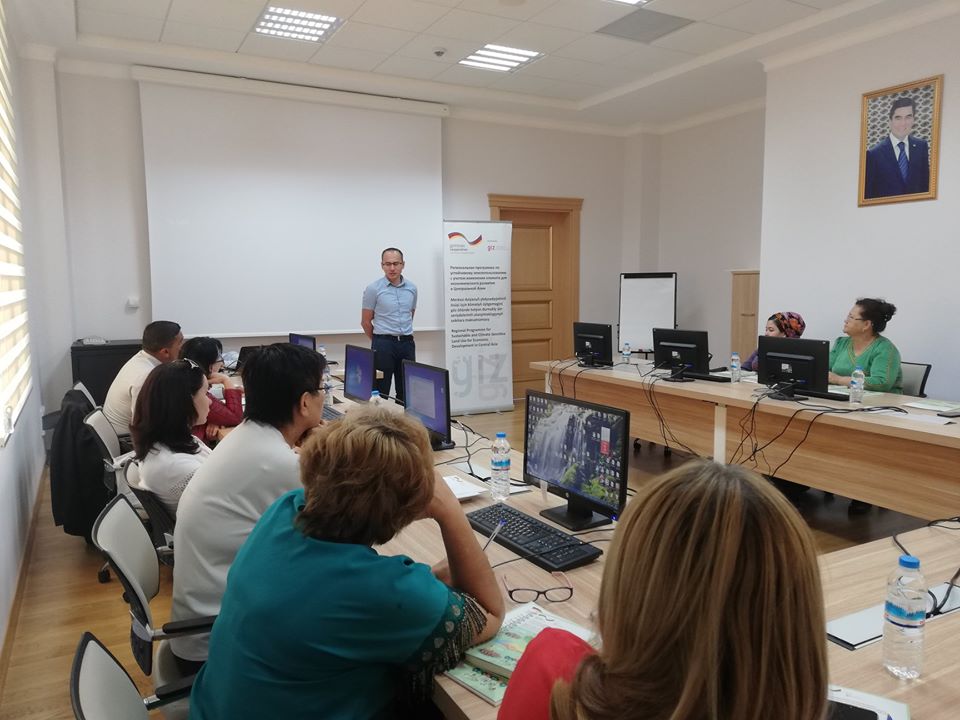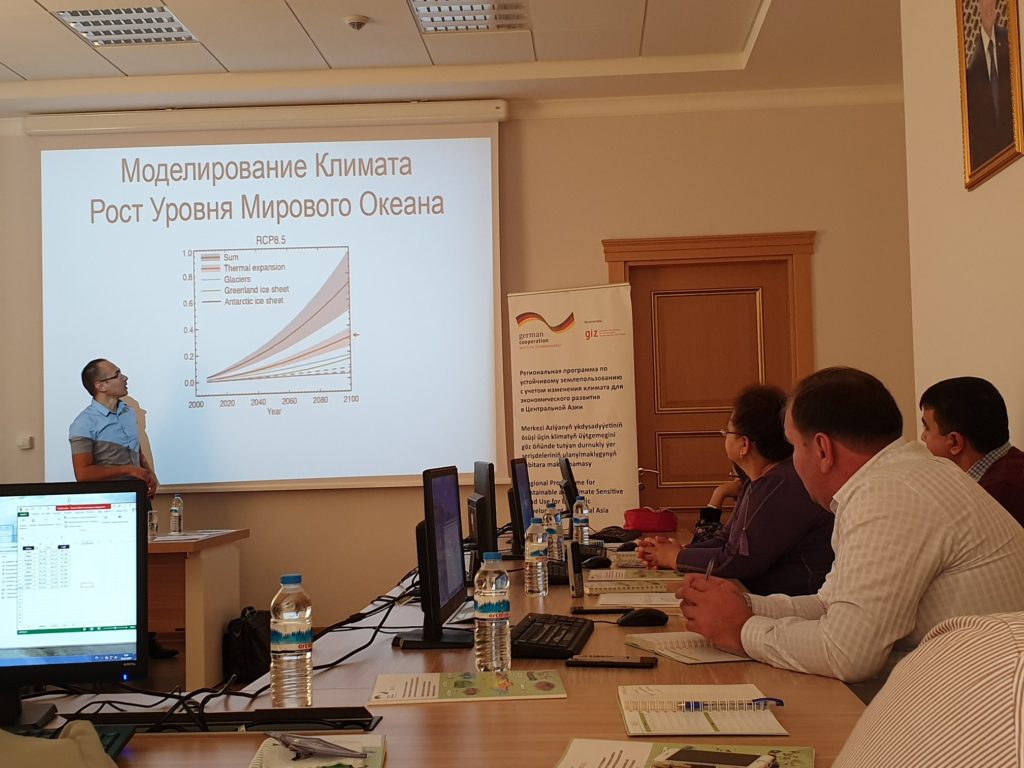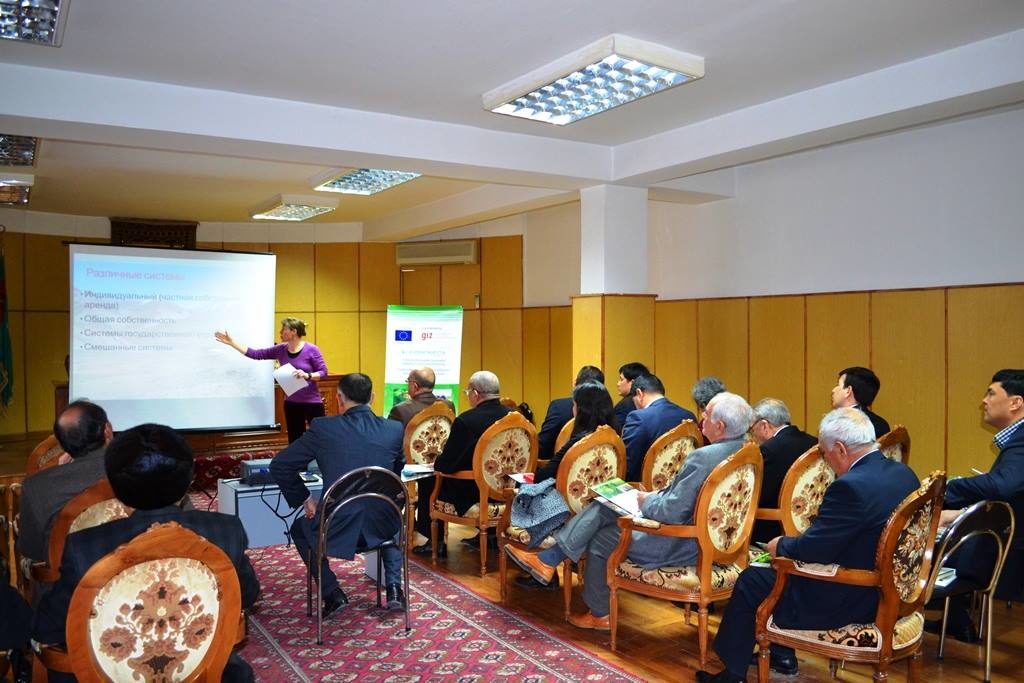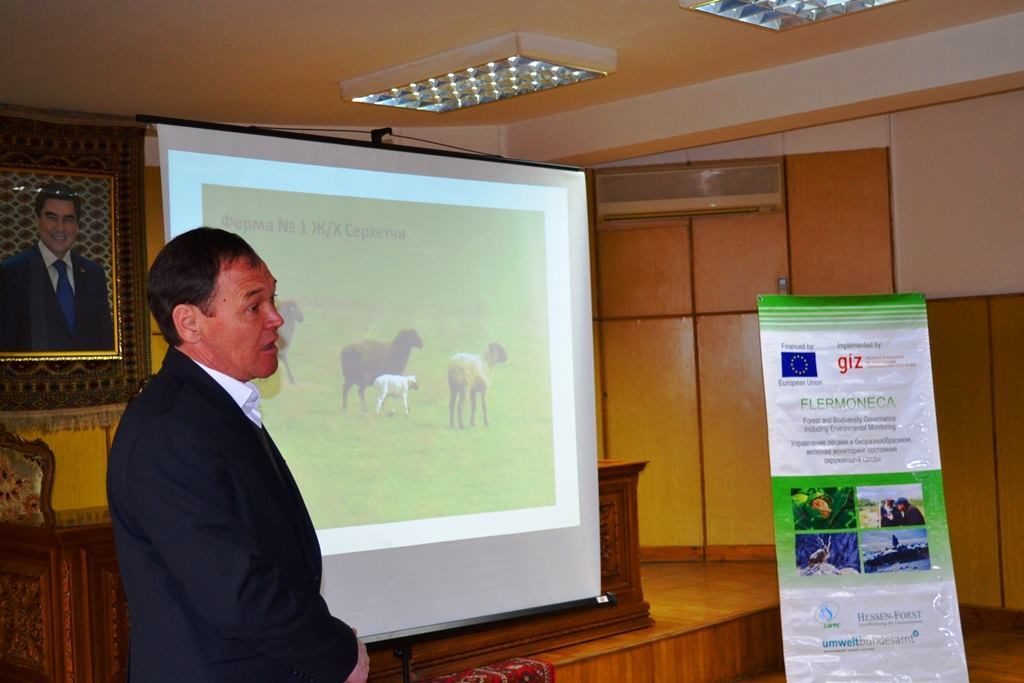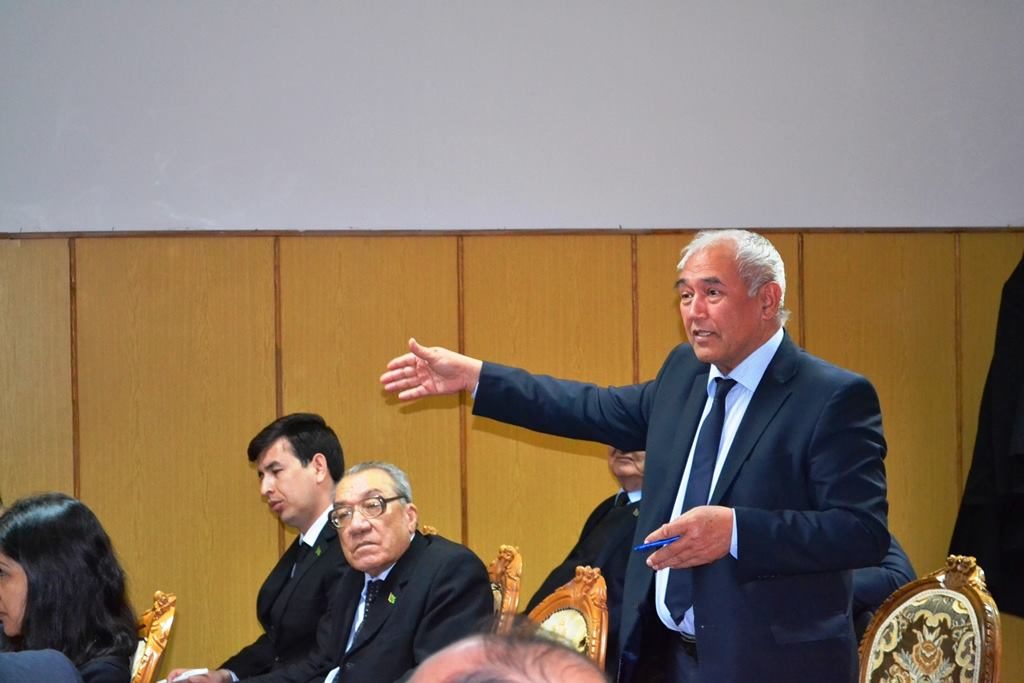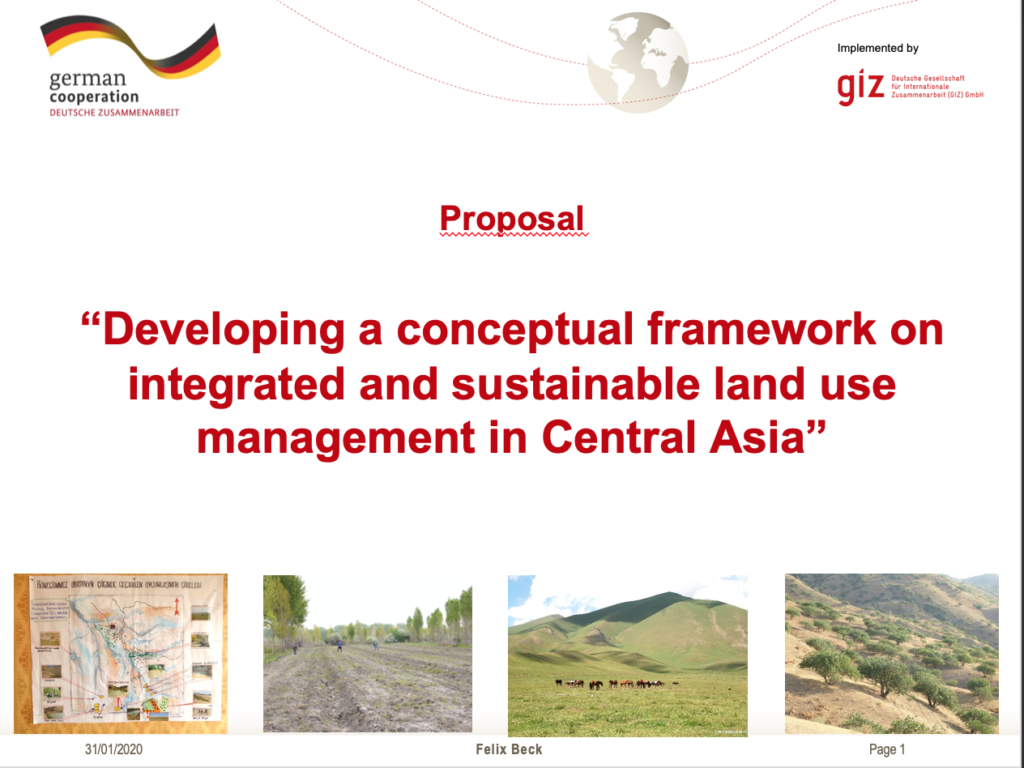Since 2009, the Deutsche Gesellschaft für Internationale Zusammenarbeit (GIZ) GmbH Program has been supporting knowledge exchange on sustainable land management both between different sectors and at different levels, including local, national and regional.
Within the framework of activities in Turkmenistan, the Regional Program, at the request of the national partner, holds narrow technical seminars. To increase the capacity of employees of the Turkmen Hydrometeorological Service, the Program organized a climate forecasting training in September 2018 and a training on climate modeling in October 2019.
Specialists of the Land Resources Service were trained in conducting geobotanical research (October 2017) attended by experts from Mongolia and Kazakhstan.
The Program also organizes study tours on sustainable pasture management to foreign countries for Turkmen partners.
In May 2018, a government delegation involved in the development of new pasture law visited the French Pyrenees to learn about the current pasture management system.
In 2015, with the support of the program “Sustainable Development of Central Asia”, Turkmenistan developed the Law on Pastures. However, some provisions of the Law were completely new and difficult to implement in Turkmenistan. In this regard, it was necessary to develop detailed regulations. During a trip to France, Turkmen delegates could see how the French experience could be replicated in Turkmenistan. Participants noted that along with independent pastoral groups, there were groups who worked more closely with the government, which is more applicable in Turkmenistan.
The study tour participants learned that there were several pasture management systems in the French Pyrenees. Pastures are state owned but managed by users as a shared resource. Methods of organizing users, accessing pastures, and relations between users and state bodies responsible for environmental and sanitary regulation are all relevant to Turkmenistan.
For example, management decentralization to the level of users leads to increased efficiency. Most pastures are managed by livestock breeders themselves and are divided into pasture user groups (PUGs). This eliminates the need for government agencies to communicate with hundreds of individual herders. They work locally and thus have the advantage of solving local problems and planning appropriate infrastructure development. Pasture access hierarchies give preference to the needs of residents, while avoiding excessive or incomplete grazing and allowing outside users to graze on pastures based on their carrying capacity.
The delegation consisted of nine representatives of the Parliament, the Ministry of Agriculture and Water Resources, the heads of the Land Resources Service offices of Ahala and Maryi veloyats, GIZ consultants, lawyers and land use experts.
The delegation consisted of nine representatives of the Parliament, the Ministry of Agriculture and Water Resources, the heads of the Land Resources Service offices of Ahala and Maryi veloyats, GIZ consultants, lawyers and land use experts. .
Also, in March 2019, the Program specialists and experts were invited to the Scientific and Methodological Center for Sustainable Development Goals to deliver a lecture for students from various regions of Turkmenistan on the activities of the Program to achieve the SDGs. This made it possible to introduce the concept of integrated land management approaches (ILUMA) to a wide audience. The presentation was based on specific examples of sustainable pasture management as provided for by the Law of on Pastures of Turkmenistan.
